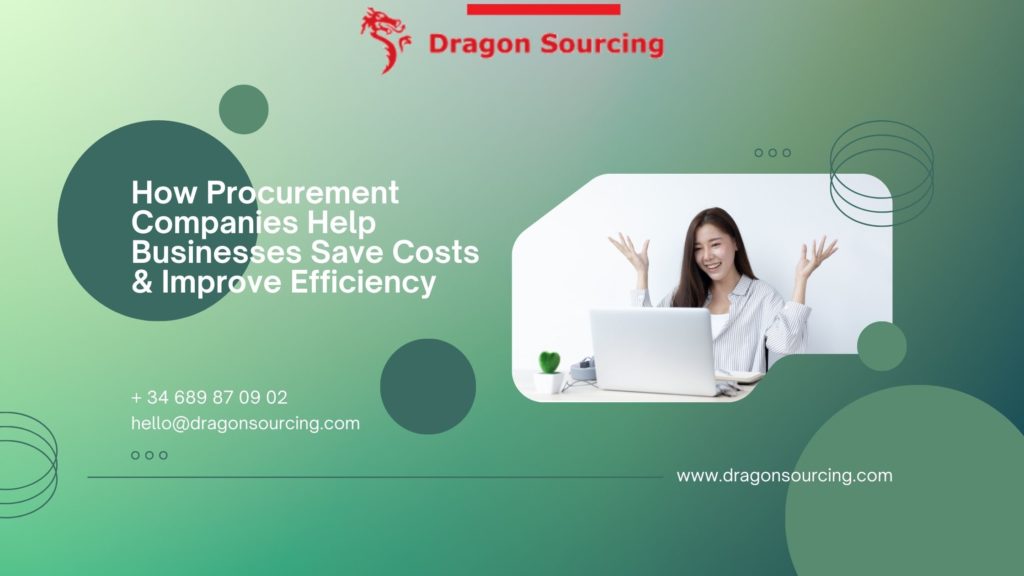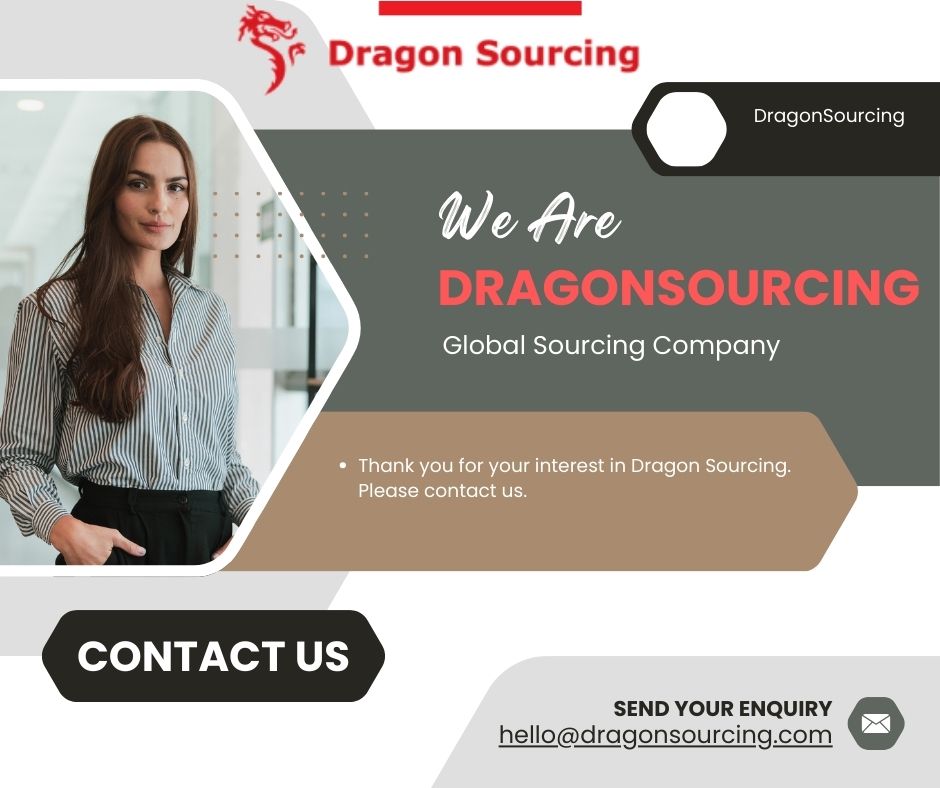
Synopsis:
How Procurement Companies Help Businesses Save Costs & Improve Efficiency
-
Introduction – Procurement companies optimize sourcing, purchasing, and supplier management to enhance business efficiency and cost savings.
-
Cost Savings – They leverage bulk purchasing power, negotiate better contracts, reduce administrative costs, and minimize supply chain disruptions.
-
Efficiency Improvement – Streamlining procurement processes, managing supplier performance, ensuring compliance, and optimizing inventory management.
-
Technology Integration – AI, machine learning, and blockchain enhance transparency, forecasting, and decision-making.
-
Case Studies – Real-world examples show significant cost reductions and operational improvements.
-
Conclusion – Partnering with a procurement company drives profitability, resilience, and sustainable business growth.
Introduction
In today’s fast-paced and highly competitive business environment, organizations are constantly seeking ways to reduce costs and improve operational efficiency. One of the most effective strategies is partnering with procurement companies. These specialized firms help businesses optimize their purchasing processes, negotiate better deals, and streamline supply chain management. In this blog, we will explore how procurement companies contribute to cost savings and efficiency improvements while ensuring compliance and quality.
Understanding Procurement Companies
Procurement companies are third-party firms that manage sourcing, purchasing, and supplier relationships on behalf of businesses. They leverage industry expertise, technology, and strong vendor networks to secure the best possible deals while ensuring quality and compliance. Procurement companies play a crucial role in industries such as manufacturing, healthcare, retail, and construction, where supply chain efficiency directly impacts profitability and operational effectiveness.
How Procurement Companies Help Businesses Save Costs
1. Leveraging Bulk Purchasing Power
One of the primary ways procurement companies help businesses save money is by utilizing their bulk purchasing power. These companies consolidate orders from multiple clients, allowing them to negotiate lower prices with suppliers. As a result, businesses benefit from significant cost savings on raw materials, equipment, and other essential goods.
2. Negotiating Better Contracts
Procurement experts have in-depth knowledge of industry pricing trends and supplier agreements. They use this expertise to negotiate favorable contract terms, including bulk discounts, extended payment terms, and performance-based pricing structures. This ensures businesses get the best value for their money while mitigating financial risks.
3. Reducing Administrative Costs
Managing procurement in-house requires significant investment in personnel, technology, and processes. Outsourcing to a procurement company eliminates these overhead costs, as businesses no longer need to maintain a dedicated procurement department. This allows organizations to allocate resources to core business functions, driving overall growth.
4. Minimizing Supply Chain Disruptions
Supply chain disruptions can lead to increased costs due to delays, rush shipping, and production stoppages. Procurement companies have established supplier relationships and contingency plans in place to mitigate these risks. By ensuring a reliable supply of materials, they prevent costly interruptions and maintain operational continuity.
5. Enhancing Spend Visibility & Cost Control
Procurement companies use advanced analytics and reporting tools to provide businesses with detailed insights into their spending patterns. This visibility helps organizations identify cost-saving opportunities, eliminate unnecessary expenditures, and make data-driven purchasing decisions.
How Procurement Companies Improve Efficiency
1. Streamlining Procurement Processes
Procurement companies implement automated procurement systems that reduce manual intervention and enhance efficiency. These digital platforms facilitate seamless order processing, approvals, and vendor communication, allowing businesses to focus on strategic initiatives rather than administrative tasks.
2. Supplier Performance Management
Working with the right suppliers is critical to operational efficiency. Procurement companies evaluate supplier performance based on key metrics such as delivery timelines, quality standards, and service reliability. By continuously monitoring supplier performance, they ensure businesses work with the most reliable vendors, reducing the risk of delays or substandard products.
3. Compliance & Risk Mitigation
Regulatory compliance is a crucial aspect of procurement, particularly in industries like healthcare, food, and manufacturing. Procurement companies ensure that suppliers adhere to industry regulations and quality standards, reducing the risk of non-compliance penalties and reputational damage. They also conduct due diligence to assess supplier credibility and mitigate risks associated with fraud or unethical practices.
4. Optimizing Inventory Management
Effective inventory management is essential for maintaining cash flow and reducing waste. Procurement companies analyze demand patterns and supplier lead times to optimize inventory levels. By ensuring just-in-time (JIT) procurement, businesses can minimize excess inventory costs while preventing stockouts that could disrupt operations.
5. Digital Transformation & Procurement Technology
Modern procurement companies leverage artificial intelligence (AI), machine learning, and blockchain technology to enhance procurement efficiency. AI-driven predictive analytics help businesses forecast demand, while blockchain ensures transparency and security in supplier transactions. These technological advancements enable businesses to make smarter purchasing decisions and reduce inefficiencies in the procurement process.
Case Studies: Real-World Impact of Procurement Companies
Case Study 1: Cost Savings in the Manufacturing Industry
A mid-sized manufacturing company partnered with a procurement firm to optimize its raw material sourcing. By leveraging the procurement company’s bulk purchasing power and supplier network, the business reduced material costs by 15% and improved supplier delivery times by 20%. These improvements resulted in increased production efficiency and higher profit margins.
Case Study 2: Retail Supply Chain Optimization
A retail chain with multiple locations struggled with inconsistent supplier pricing and frequent stockouts. A procurement company implemented an automated supplier management system that standardized pricing and ensured timely deliveries. As a result, the retailer reduced inventory carrying costs by 25% and improved customer satisfaction through better product availability.
Choosing the Right Procurement Company
When selecting a procurement partner, businesses should consider the following factors:
- Industry Experience: Ensure the procurement company has expertise in your industry.
- Supplier Network: A strong supplier base ensures better pricing and reliability.
- Technology Integration: Look for firms that use advanced procurement software and analytics.
- Track Record: Review case studies and client testimonials to assess performance.
- Compliance & Ethics: Ensure the company follows ethical sourcing and regulatory compliance standards.
Conclusion
Partnering with a procurement company is a strategic move that enables businesses to achieve significant cost savings and efficiency improvements. By leveraging bulk purchasing power, negotiating better contracts, reducing administrative burdens, and optimizing supplier relationships, procurement firms play a vital role in enhancing business profitability. Additionally, their expertise in compliance, risk management, and technology-driven solutions helps organizations streamline operations and remain competitive in their respective industries. Investing in professional procurement services is not just about saving money—it’s about building a more resilient and efficient business model.



